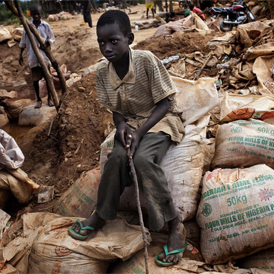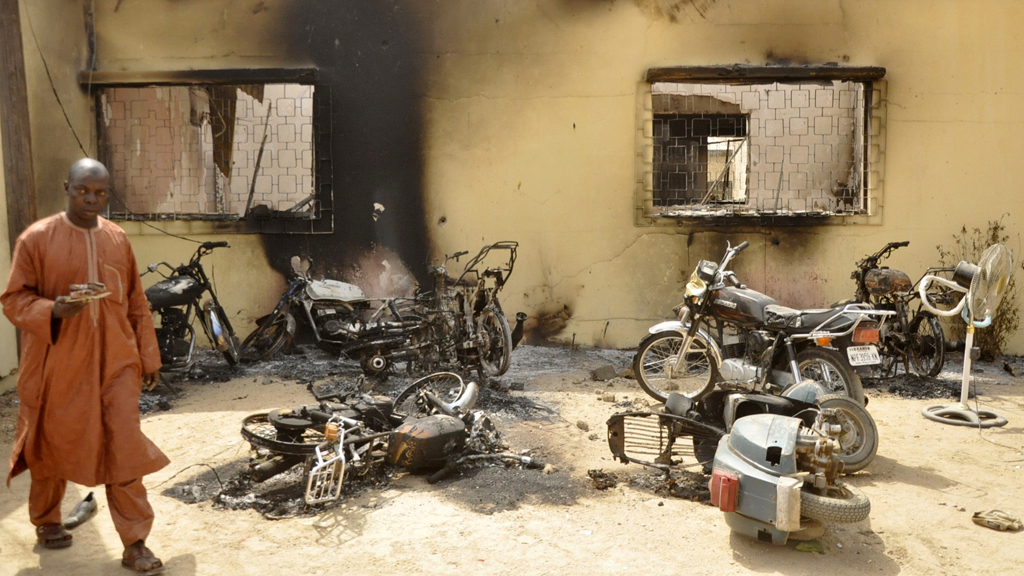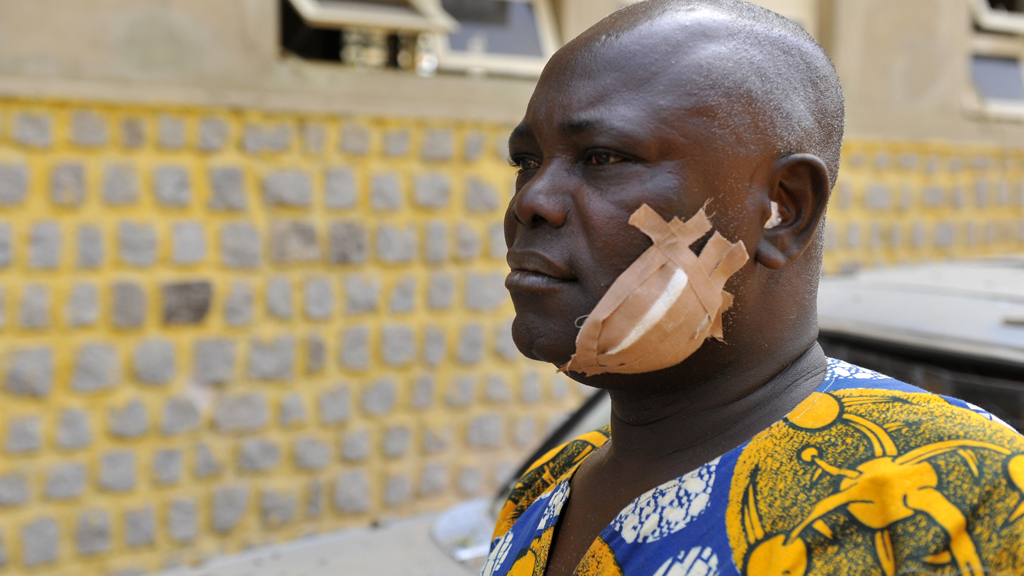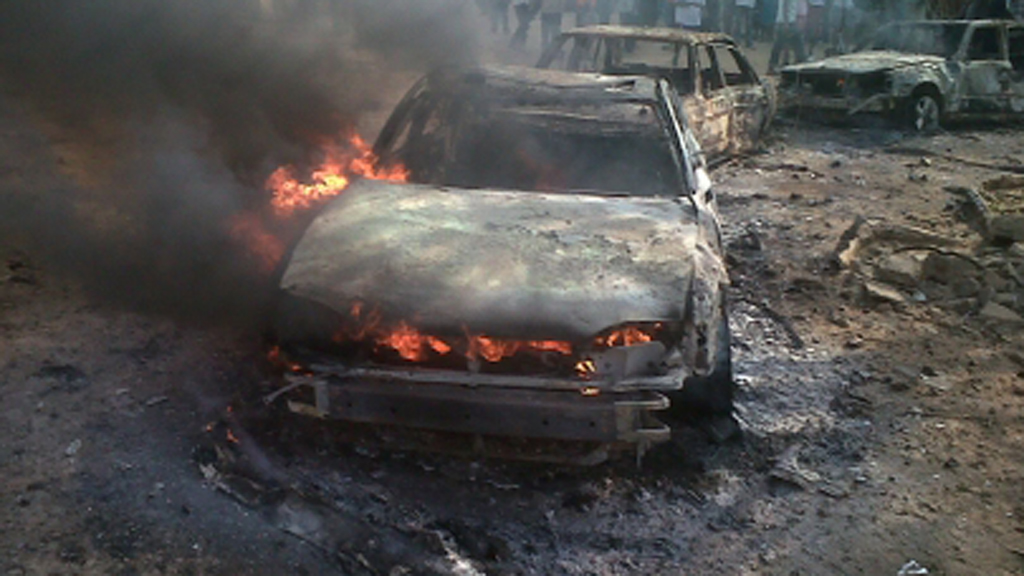Lethal by-product of Nigeria’s gold trade
The gold-mining state of Zamfara is the site of the world’s worst lead-poisoning disaster. Hundreds of children have died, and campaigners tell Channel 4 News thousands more face permanent disability.
Few people will have heard of Begega, in northern Nigeria, yet the village lies at the heart of a state contaminated by dangerous levels of lead.
The source of the problem, gold, is a natural resource the people of Zamfara thought would bring them hope; instead it has delivered tragedy.
The basic mining methods mean contaminated lead dust is released into the atmosphere as the ore is crushed. The toxic particles cling to clothing and buildings and infiltrate water supplies.
At least 400 children have died from lead poisoning since March 2010 but the World Health Organisation says the full scale of the problem is “still to be determined”.
Picture gallery: Blood and oil in Nigeria

‘We have lost so many children’
Amina Murtala, from Bagega, is 20-years-old. She had six children but three have died: “Each time one died, I was so distraught.
“Seven children have died so far in this compound. If you include mine, that would make it 10. We have lost so many children.”
Two years after the lead poisoning was initially discovered, Human Rights Watch (HRW) is putting fresh pressure on the Nigerian government to step up its efforts.
Joseph Amon, director of health and human rights at HRW, says three key things need to be done: “They need to clean up the lead that is everywhere in the communities.
“Then they need to treat these kids who have extremely high levels of lead who are really at a high risk of dying. And third, put in place education that enforces better mining practices and removes the ongoing risk that can occur.”
Campaigners emphasise that there is no point treating the children until their communities have been “cleaned” and safer mining practices permanently adopted.
What is lead poisoning?
Lead is toxic, and high levels of exposure can cause brain, liver, kidney, nerve, and stomach damage, as well as permanent developmental disabilities.
Children are most at risk because their developing bodies are sensitive to the toxic dust.
Lead poisoning can be treated using a process called chelation therapy, which draws out toxic metals from the body.
Human Rights Watch says the disaster must not just be measured by the number of young lives lost but also by the long-term effects.
The charity’s Jane Cohen, who is based in Lagos, told Channel 4 News the impact on communities is hard to overstate.
“The majority of children in some areas will not be able to fully contribute to society as adults, due to the irreversible effects of lead poisoning,” she says.
“If the clean-up continues at this pace, children will continue to be exposed through their environment, developing foetuses will continue to be exposed through the mother, infants will continue to be exposed through breast milk, and children will continue to die or to have their natural capacities compromised by lead poisoning.”

As long as there is gold in Zamfara, people will be willing to mine it, regardless of the dangers. Its price has risen since the financial crisis began, and demand is high.
Local traders buy the gold from villagers. Human rights campaigners have told Channel 4 News it then leaves the country – but pinning down specific companies who buy it is difficult.
Hamza Abbakar, from Bagega, lost two children but continues to work as a miner. “We didn’t have time to take [my son] to the hospital because he became violently ill.
“Before we could get him to the hospital, he died. When my second child also got sick, I wasn’t at home. But I was told what happened to my first child also happened to my second child.
“We learned there was gold in this area so I went there to grind rocks. That’s what I do, I go there to grind rocks. That’s how we make a living.”
Channel 4 News is waiting for a response from the Nigerian government on its handling of the epidemic.
More on Nigeria
-

More than 170 dead in Nigeria attacks
22 January 2012
-

Nigeria’s Christians face a grim new year
31 December 2011
-

Fatal bomb blasts hit Nigerian churches
25 December 2011
-
Latest news
-
Year of civil war in Sudan ‘a nightmare of hunger and displacement’4m

-
Israel fears repeat Iran attack, says former editor of Jerusalem Post4m

-
How long could it take to clear the Rwanda asylum seeker backlog?3m

-
Rwanda asylum boost for Sunak as bill expected to become law2m

-
Donald Trump trial: day one of historic Stormy Daniels court case4m

-







